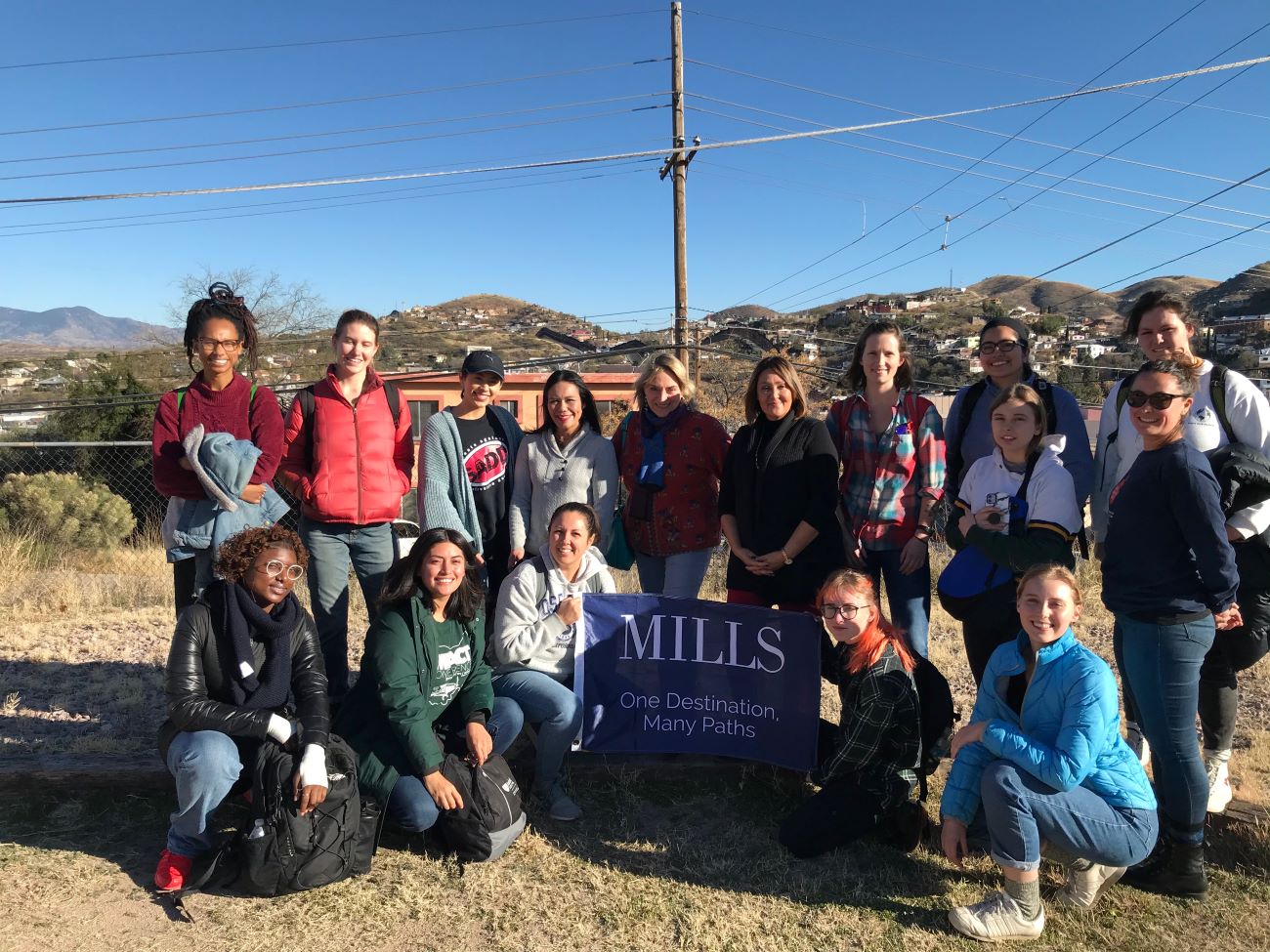Ever since I returned from my school trip to Nogales on the US-Mexico border, friends and family have asked me, “How was the trip? Was it fun?”
My brain usually races through ten different answers, all radically different in tone, and I give myself a couple of moments to piece together how I want to respond.
If I weren’t engaging in immediate conversation and had time to deeply explain the complexities of my experience, what would I say? Especially if I had the chance to really elaborate on just how impactful the trip was?
I think I would start by saying that it was an opportunity of the utmost importance and significance to my studies that are rooted in social justice and direct action.
I would also talk about being in Arizona and seeing the damage of the border wall and militarization on full display. On top of the detrimental environmental impacts on natural habitats and resources, underneath, our group could all sense the deep trauma that saturates every inch of the land that has been co-opted and dominated by the border-industrial complex. It was eye-opening, but it was heartbreaking. By the end of my trip, I was infuriated to see what these communities are facing amidst unprecedented border wall construction, hyper-militarization of their towns and destruction of their natural environment. Above all, this experience was something that I will never forget.
Border wall destruction in Organ Pipe Cactus National Monument. Photo: Laiken Jordahl, Center for Biological Diversity.
My trip revealed how trauma manifests itself in so many ways. We don’t just hold it within our bodies -- the trauma we see and experience is absorbed by the earth. When we went to the eastern part of the Nogales border near the Santa Cruz river, or to Sásabe, I could almost sense the pain from deep within my bones, within the soil, within the plants and trees and ground that is vivisected by the human-made, immutable wall. Colonizers have brought trauma for centuries to Indigenous communities and land, and have had little regard for history or impact. This is exemplified in today’s culture of punitive immigration policies and the Trump administration’s insistence on creating more border walls to continue the legacy of imperialism -- especially its effects on Latin American countries.
This being said, I would also mention that the federal government is using its power to completely eliminate the concept of representative democracy for our communities in the US, especially communities in the borderlands. We are living in an age of capitalist exploitation and an oligarchy of rich, corrupt government officials. A Department of Homeland Security policy contains a rule that has immeasurable, concrete damage. Section 102 of the Real I.D. Act gives the federal government the power to bypass previously existing laws that necessitate thought, community support, and environmental tests before constructing walls that impact literally everything surrounding that line of metal and wire. It’s angering, and more people need to know about this. This section of the Real ID Act means borderland communities lack access to protections for clean water, air, Native culture protections, endangered species, environmental review, and many more safeguards for our health, environment, and preservation.
Overall, my trip was eventful, impactful, important, angering, saddening, and invigorating. The borderlands and the myriad of its community members on both sides have inspired me and focused my priorities more than ever on environmental justice, legislative justice, and justice for migrants who are experiencing the brunt of the administration’s cruelty against Brown and Black communities. This is why I stand with the Sierra Club’s continued revolution for justice and resistance against the administration’s inhumane and destructive border policies.
It is of the absolute importance for the public to support, learn, and participate. Read current events. Write letters to your representatives. Engage in conversation with others. Share news stories and find the gaps in the media’s coverage of the borderlands.
Audre Lorde said, “You do not have to be me in order for us to fight alongside each other. I do not have to be you to recognize that our wars are the same. What we must do is commit ourselves to some future that can include each other and to work toward that future with the particular strengths of our individual identities. And in order for us to do this, we must allow each other our differences at the same time as we recognize our sameness.”
These wars will be won, and it begins and ends with us and our revolution.
